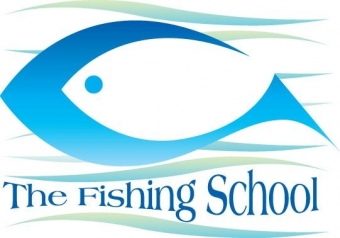- Education Topics
- Achievement Gap
- Alternative Education
- American Education Awards
- Assessment & Evaluation
- Education during COVID-19
- Education Economics
- Education Environment
- Education in the United States during COVID-19
- Education Issues
- Education Policy
- Education Psychology
- Education Scandals and Controversies
- Education Reform
- Education Theory
- Education Worldwide
- Educational Leadership
- Educational Philosophy
- Educational Research
- Educational Technology
- Federal Education Legislation
- Higher Education Worldwide
- Homeless Education
- Homeschooling in the United States
- Migrant Education
- Neglected/Deliquent Students
- Pedagogy
- Sociology of Education
- Special Needs
- National Directories
- After School Programs
- Alternative Schools
- The Arts
- At-Risk Students
- Camps
- Camp Services
- Colleges & Universities
- Counties
- Driving Schools
- Educational Businesses
- Financial Aid
- Higher Education
- International Programs
- Jewish Community Centers
- K-12 Schools
- Language Studies
- Libraries
- Organizations
- Preschools
- Professional Development
- Prom Services
- School Assemblies
- School Districts
- School Field Trips
- School Health
- School Supplies
- School Travel
- School Vendors
- Schools Worldwide
- Special Education
- Special Needs
- Study Abroad
- Teaching Abroad
- Volunteer Programs
- Youth Sports
- For Schools
- Academic Standards
- Assembly Programs
- Blue Ribbon Schools Program
- Educational Accreditation
- Educational Television Channels
- Education in the United States
- History of Education in the United States
- Reading Education in the U.S.
- School Grades
- School Meal Programs
- School Types
- School Uniforms
- Special Education in the United States
- Systems of Formal Education
- U.S. Education Legislation
- For Teachers
- Academic Dishonesty
- Childcare State Licensing Requirements
- Classroom Management
- Education Subjects
- Educational Practices
- Interdisciplinary Teaching
- Job and Interview Tips
- Lesson Plans | Grades
- Professional Development
- State Curriculum Standards
- Substitute Teaching
- Teacher Salary
- Teacher Training Programs
- Teaching Methods
- Training and Certification
- For Students
- Academic Competitions
- Admissions Testing
- At-Risk Students
- Career Planning
- College Admissions
- Drivers License
- Educational Programs
- Educational Television
- High School Dropouts
- Higher Education
- School Health
- Senior Proms
- Sex Education
- Standardized Testing
- Student Financial Aid
- Student Television Stations
- Summer Learning Loss
The Fishing School

Basic Information
Address: 4737 Meade St NE
Washington, DC 20019
Phone Number: (202) 399-3618
Fax Number: (202) 396-1014
Email: info@fishingschool.org
Action Shots
* There are currently no photos associated with this listing.
Additional Information
Causes Served: Youth, Academic Enrichment, Education
Background Check: Yes
Population Served: Youth ages 6-12
Ages for Volunteer: 16+
Hours of Service: 4:00-7:00pm
Minimum Hours Required: 1.5 hrs
Days of Service: Monday-Thursday
Mission Statement:
The Fishing School's mission is to provide a safe haven, caring adults and academic support for vulnerable children and youth (ages 6-12) empowering them to open doors to limitless possibilities.
Philosophy/Belief Statement:
Give a man a fish, and you will feed him for a day. Teach him how to fish, and he will feed himself for a lifetime. By teaching young people to fish in the rivers of their minds, The Fishing School is changing generations.
Program History:
Since 1990, The Fishing School has served more than 2,500 youth and their families. Today, under the leadership of Executive Director Leo Givs, TFS provides youth with academic supports and a safe haven during the most vulnerable hours of the day.

